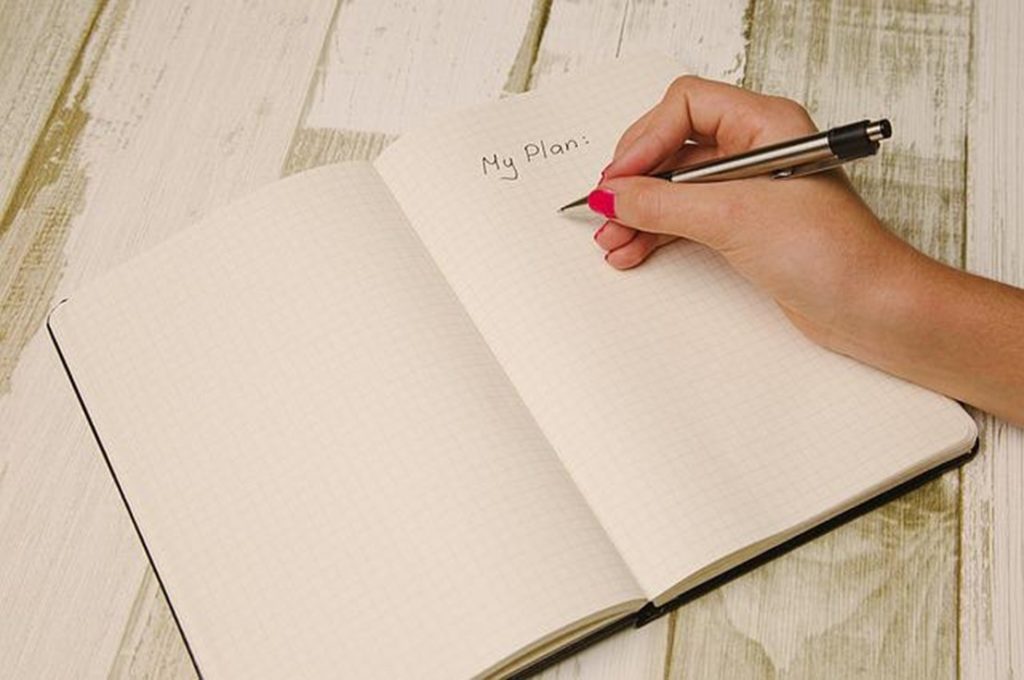
When is the best time to start a new habit?
Excellent question.
And since there are two different meanings to this question, there are two answers.
Let’s explore.
1. On what day (or time of year) should I start a new habit?
The answer to that question is simple: Now.
Don’t wait until summer or your birthday or the new year. Don’t wait until Monday. Don’t wait until tomorrow. Start today.
Don’t wait for life to get less busy. There will always be a lot going on in your life, so “I’m too busy right now” isn’t a valid excuse. Begin immediately.
Now, let’s say you’re reading this in the morning, and you want to start a habit that you’ll perform in the evening. In that case, the thing to do right now is make a concrete plan (on paper) for exactly when, where, and how you’ll do it. Then set up a reminder, so you can’t forget.

As soon as you decide that you want to start a new habit, take immediate action, either by performing the habit right now or by setting yourself up to perform it at the appropriate time.
And that leads us to the second meaning of the question, “When is the best time to start a new habit?”
2. At what time of day should I perform my new habit?
Some habits make more sense at certain times of the day. If you want to use exercise to get energized for the day, you should do it in the morning. If you want to reflect on the day by gratitude journaling or pride journaling, you should do it before bed.
But more often, a new habit could be performed at any time during the day. In such cases, you should perform the new habit either immediately before or immediately after a preexisting habit. This is called “habit stacking.”1
A new behavior is easier to do when you attach it directly to a preexisting behavior that you do every day. Rather than attempting to add a new habit at some random time of day, you bake it right into a part of your day that already has a well-established routine. This way, the old habit you’re linking it to serves as an anchor for the new habit.
For example, last spring, I adopted the habit of reading a passage from The Daily Stoic each morning (which is an excellent source of daily wisdom.) I attached this new behavior to my preexisting meditation habit by placing the book next to my meditation chair and committing to reading one passage each day before meditating. Later in the year, I adopted a pushup habit, and I decided that I would do my pushups immediately after meditating, attaching it to the other side of that habit. These new habits were easy to stick with because I linked them into a well-established part of my morning routine.

Even better, some behaviors can even be done during preexisting habits.
Several years ago, I resolved to start walking more often, and found that I could add a little extra walking each day by pacing the hallway while I brush my teeth. This might not sound like much, but it works out to be about 130,000 extra steps per year.2 Little changes like this add up.
Or let’s say you’d like to start a habit of learning about personal finance. You could subscribe to a relevant podcast and listen to it while you do something that you already do on a regular basis, such as driving to work, walking the dog, or cooking dinner.

This removes one of the most common reasons people give for not starting a new habit: not having enough time. To change your life for the better, you don’t always need more hours in the day – you might just need to be more clever about how you spend your time.
What habit do you want to start?
As you read this, you probably thought of a habit that you’ve been meaning to start. If that’s the case, put this advice into action immediately, and begin now.
And, as always, if you’d like personalized, strategic guidance, I’m here to help.
1 Clear, James. How to Build New Habits by Taking Advantage of Old Ones.
2 120 steps per brushing x 3 brushings per day x 7 days per week x 52 weeks per year = 131,040 steps per year.
